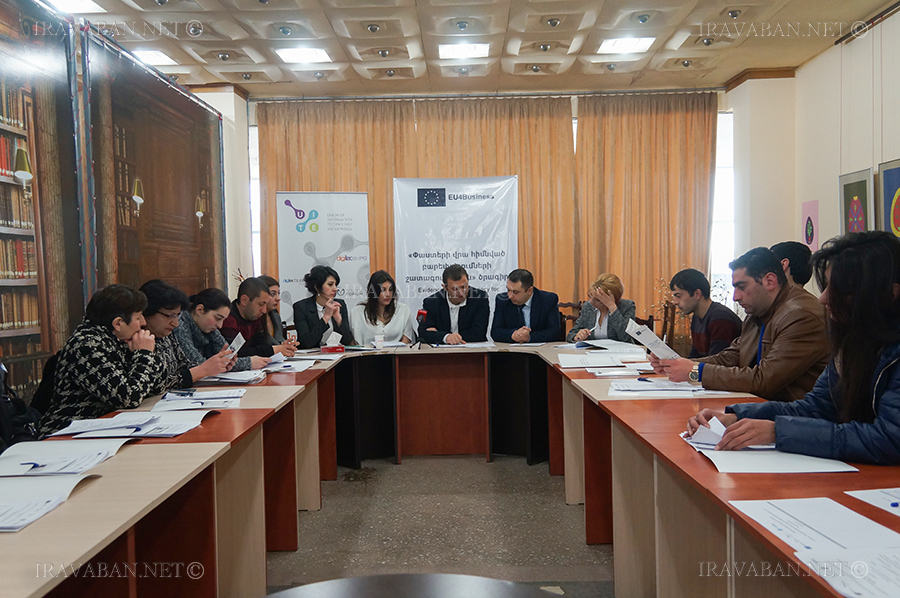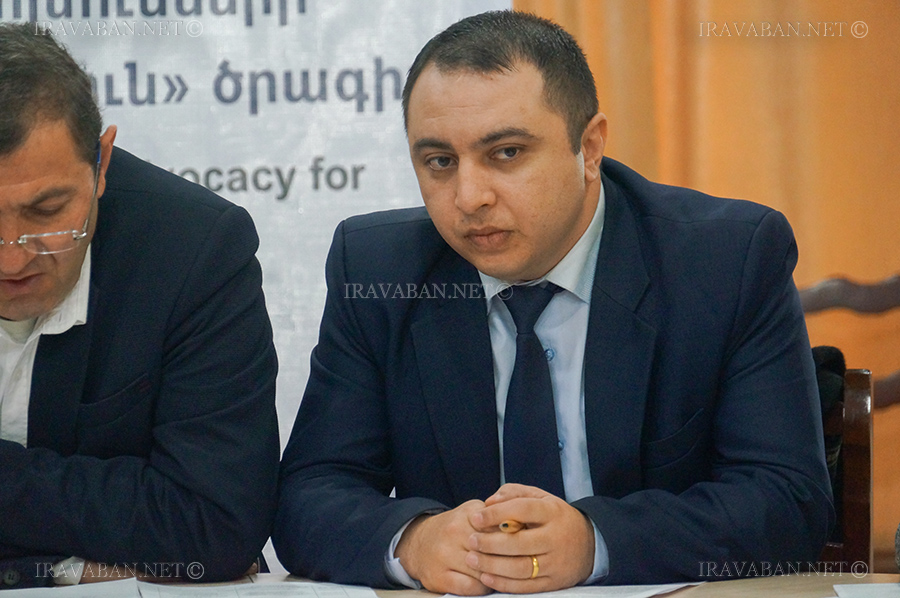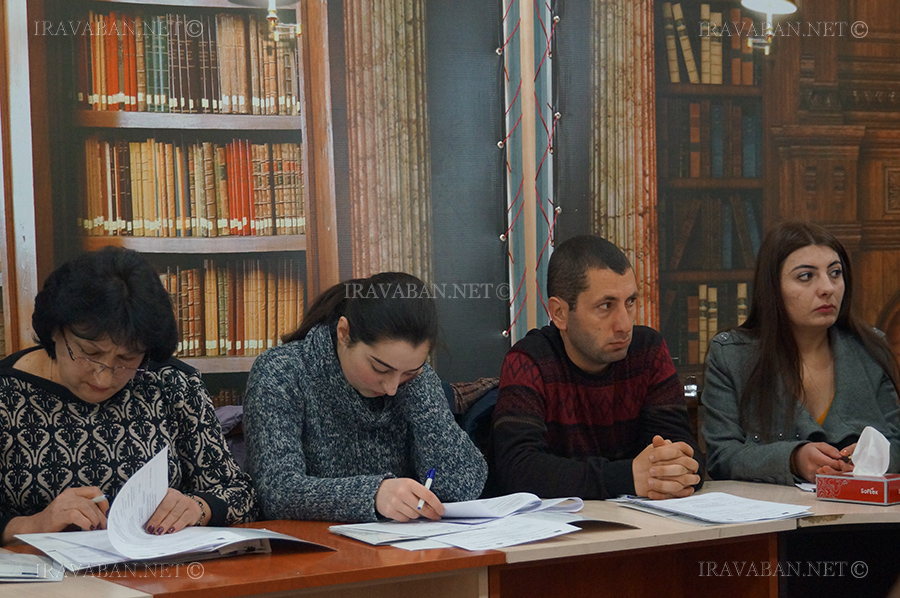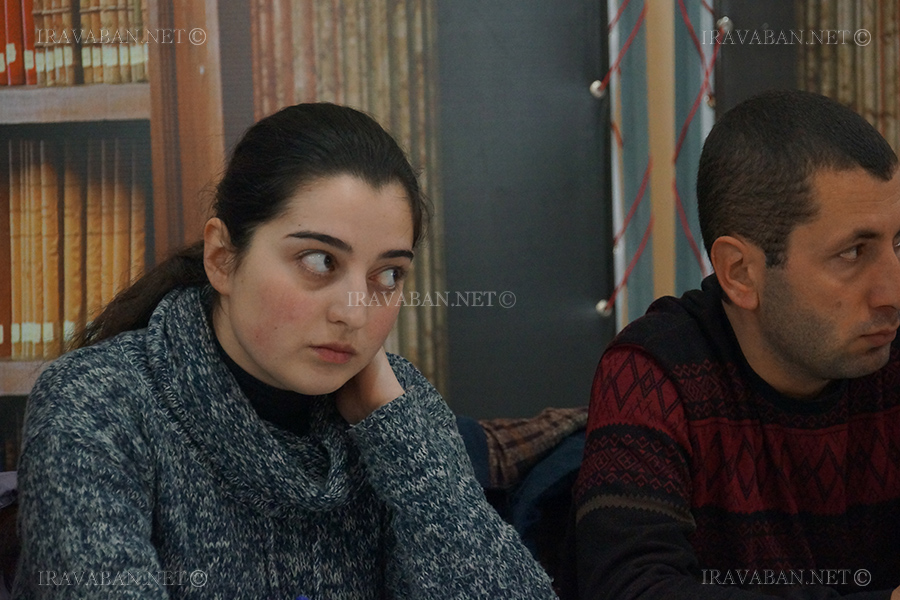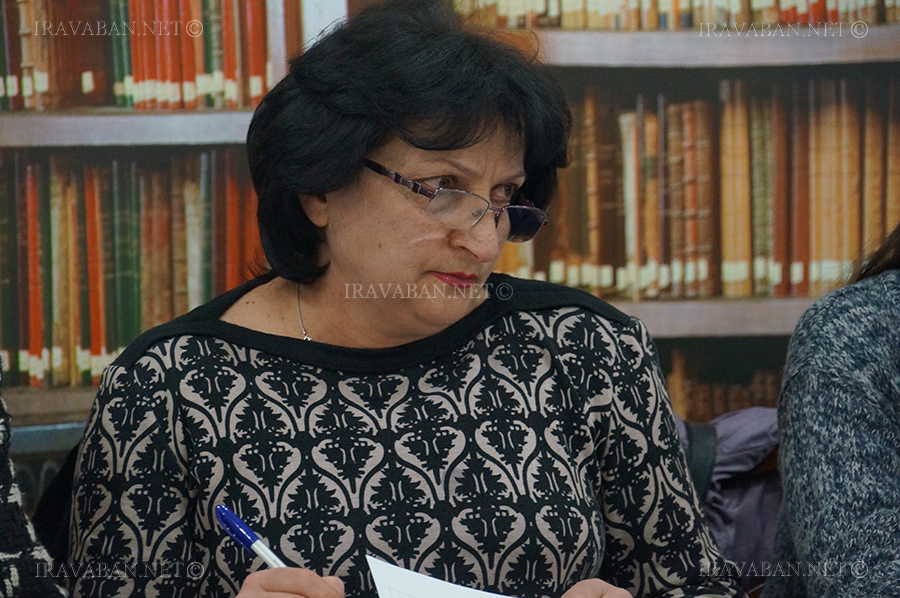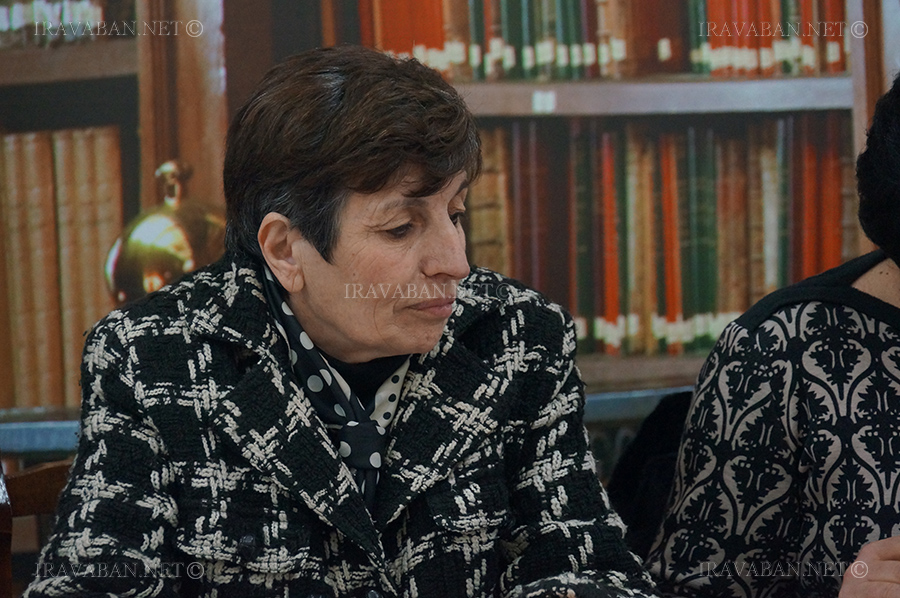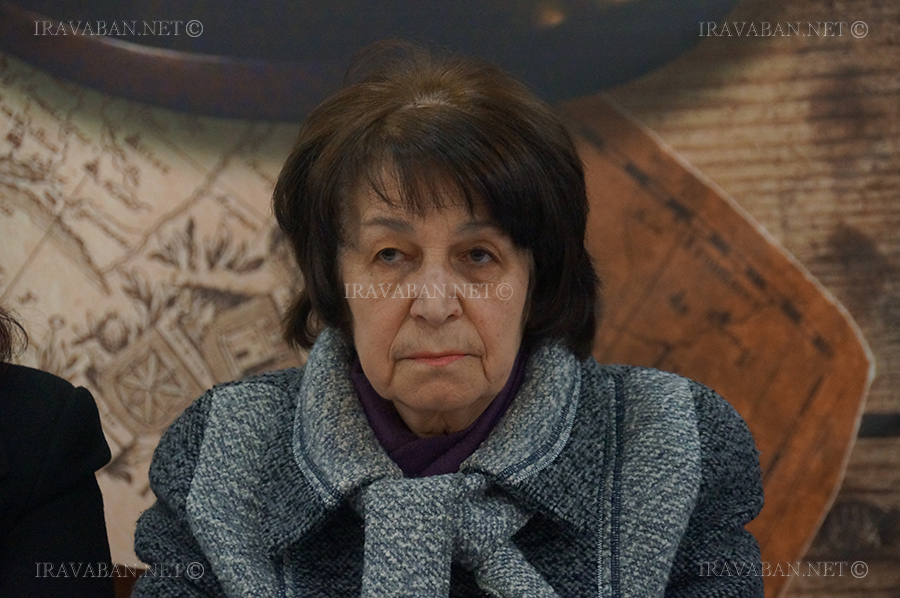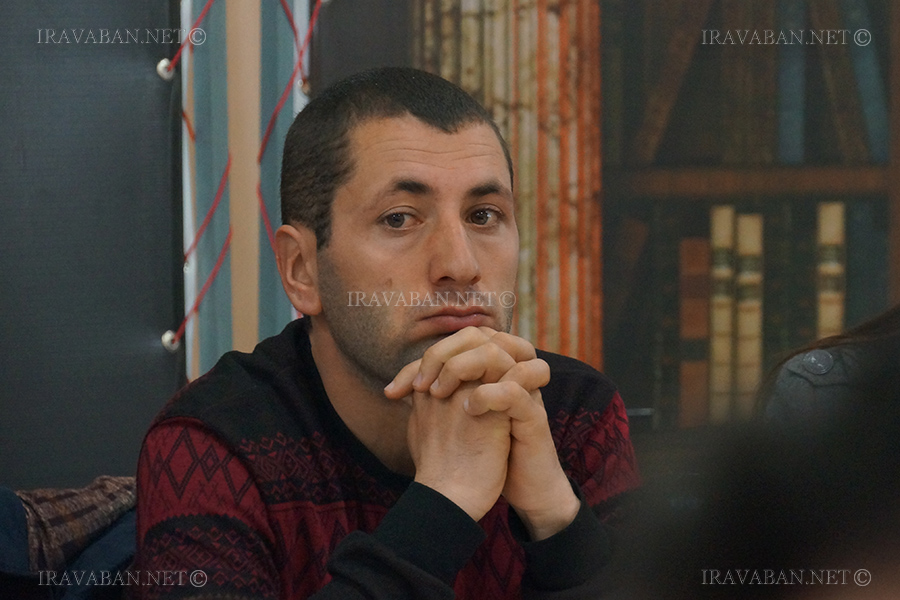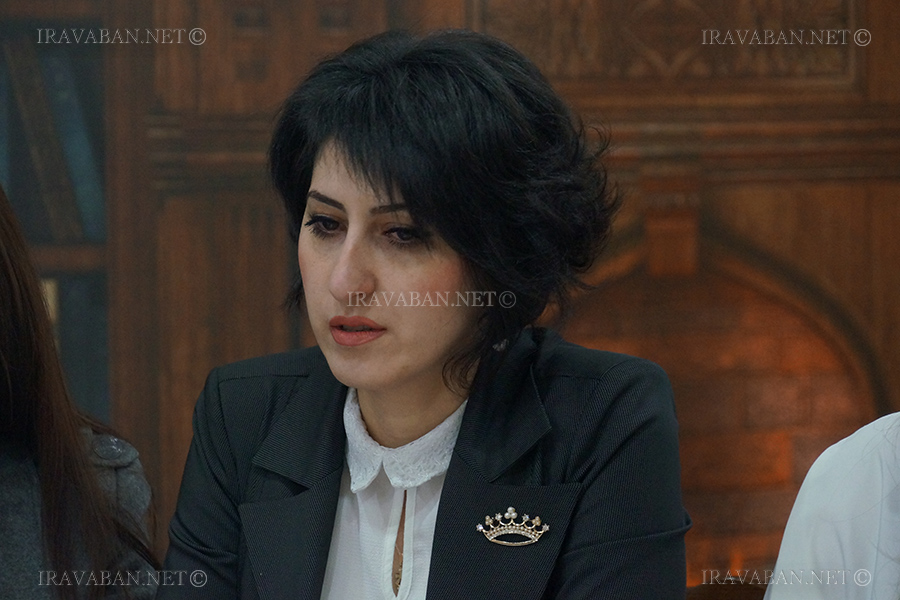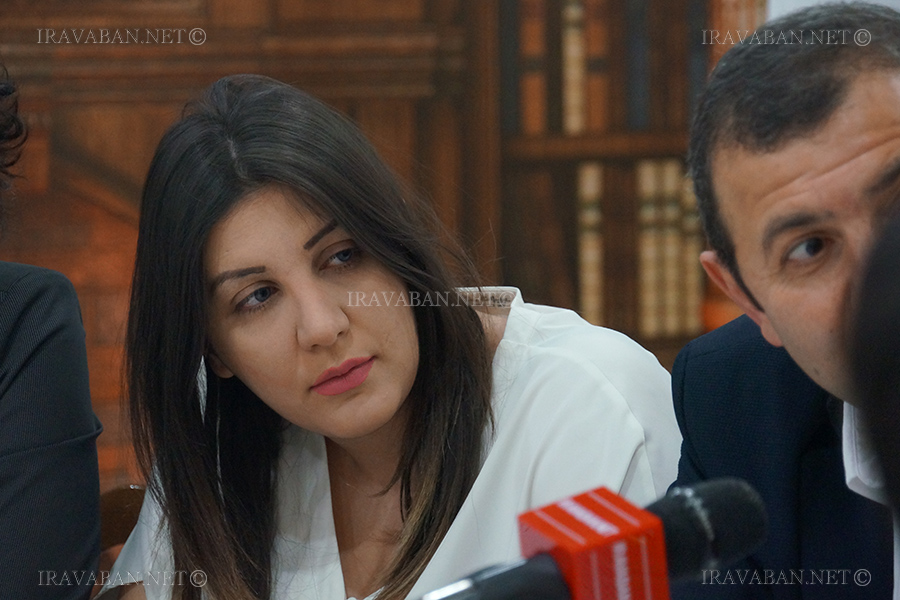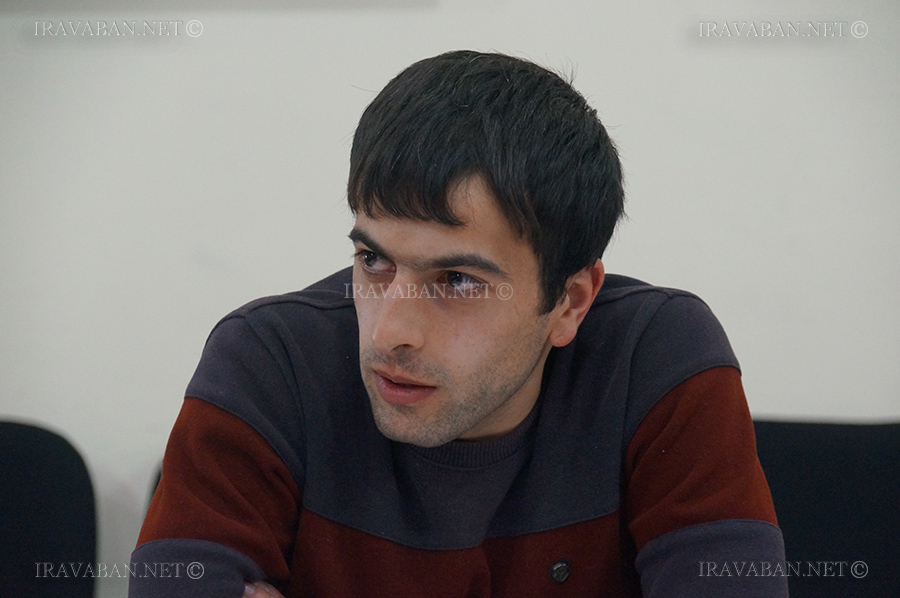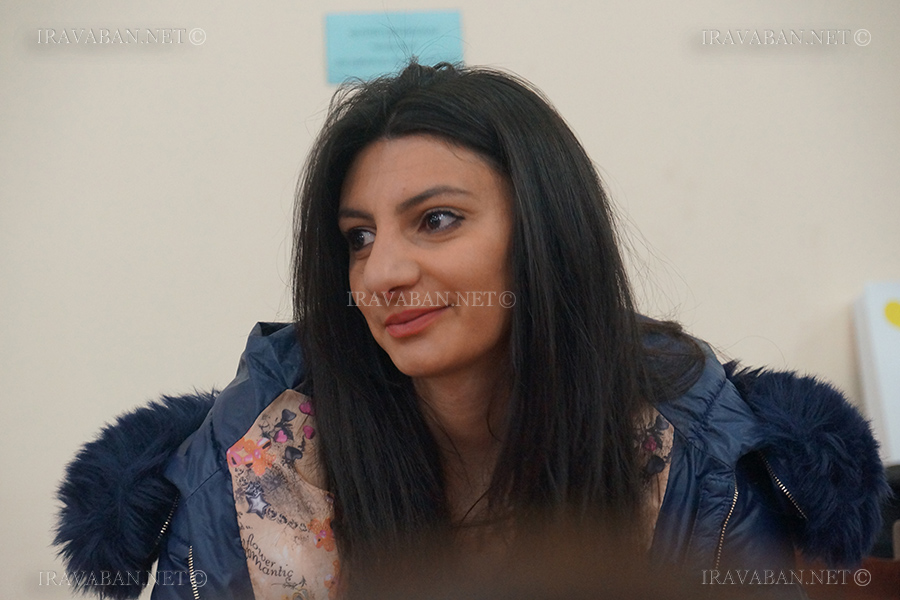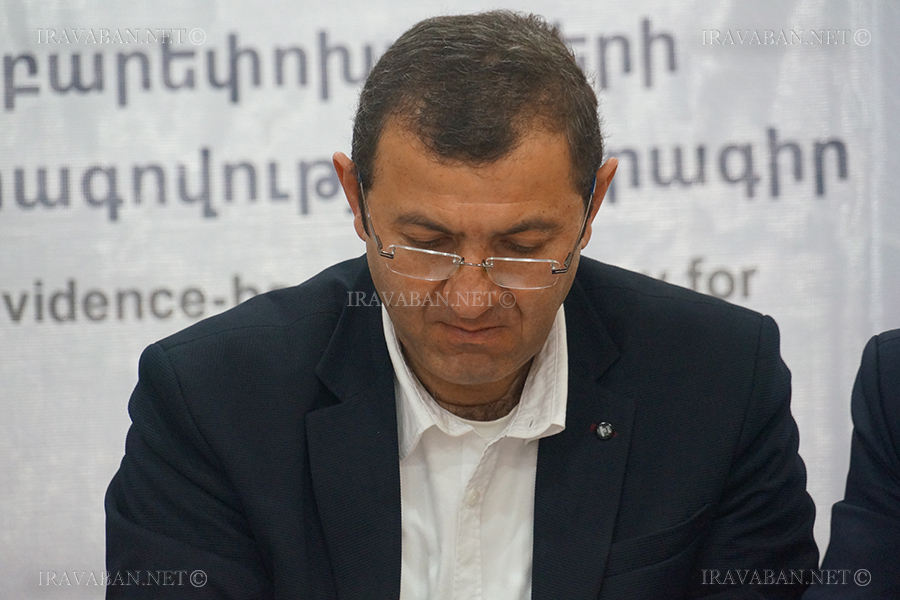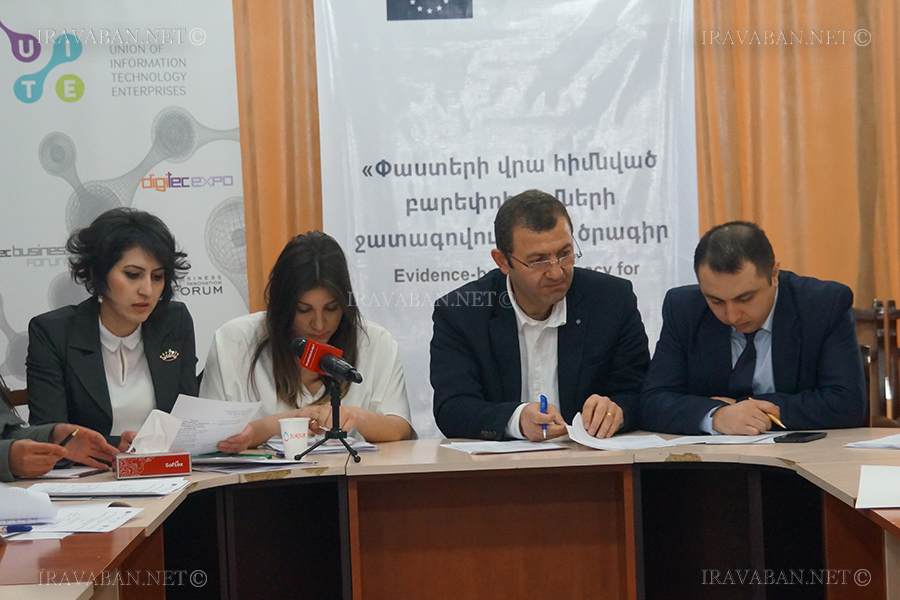28 people from Gavar currently enjoy tax benefits for self-employed persons. Ms Liana Manukyan, representative of Gavar Tax Inspectorate Department said this at the event organized in the scope of “Evidence-based Advocacy for Reform” project. The participants raised the existing problems and risks in tax legislation sphere.
The event was organized in the scope of “Evidence-based Advocacy for Reform” project, which is implemented by the consortium of Union of Information Technology Enterprises (UITE), Armenian Lawyers’ Association (ALA) and European Business Association (EBA) with financial support of the German International Cooperation (GIZ).
Mr. Sedrak Vardanyan, the Financial Manager of the Union of Information Technology Enterprises (UITE) presented the project and said that it is planned to set up an internet platform built on the latest technology in the framework of the project, which will provide opportunity to quickly inform about the issues relating the business sector and expect quick solutions.
Further, Ms Liana Manukyan, representative of Gavar Tax Inspectorate Department, spoke about the new law on granting tax benefits to self-employed persons, as well as the order, and procedures, for enjoying the benefits.
Miss Mariam Zadoyan, Lawyers of the Armenian Lawyers’ Association spoke about the problems and risks that exist in the mentioned law. According to her, e tax benefits are set to 23 activities since 1 January, but there is no explanation how just these 23 activities were selected.
She also noted that there are common definitions in the law, which is not clearly understood by citizens. Moreover, there have been cases when even the explanations by the SRC “hot line” staff were with the comment “in my opinion”.
According to Mariam Zadoyan, another problem is that the tax authorities, in some cases without possessing legal provisions, did not provide the correct information to entrepreneurs subject to the law noting that they should the activity as an individual entrepreneur to be able to enjoy the benefit of the above mentioned privilege; or vice versa, they have to become an individual entrepreneurs to become subjects of for using the benefit of privileges. In addition, no proper notification of the legislative amendment was provided to the beneficiaries of the law.
Arkadi Sahakyan, Lawyer of the Union of Information Technology Enterprises (UITE), presented the package of proposals on tax exemptions of the activities in border communities. According to him, currently there are senior managers in the IT sector mainly in Yerevan who have notably grown in the IT sector and deal with organizational issues of the sector. And there is a need to create conditions for these experts to go to border areas and apply their experience and expertise there.
And, in order to avoid loopholes and avoid providing opportunity to unscrupulous people to take advantage of these loopholes: for example, when a person works in Yerevan, but is registered in the border area and enjoys benefits, it is possible to define mechanisms, for example, providing that 70 percent of the work is done in a given location. And corresponding control mechanisms should be ensured as well.
Miss Liana Makvetsyan, representative of Gavar branch of the Armenian lawyers’ Association, presented the issues identified in the taxation sphere in Gavar.
Representatives of, the government bodies, non-governmental organizations and businesses who participated in the event lively discussed the issues raised at the roundtable discussion.
This article has been published in the scope of “Evidence-based Advocacy for Reform” project, which is implemented by the consortium of Union of Information Technology Enterprises (UITE), Armenian Lawyers’ Association (ALA) and European Business Association (EBA) with financial support of the German International Cooperation (GIZ).
This project is implemented in the frameworks of “Support to SME Development in Armenia” (SMEDA) project. (SMEDA) project is co-funded by the European Union and the German Federal Ministry for Economic Cooperation and Development (BMZ) and implemented by GIZ Private Sector Development in South Caucasus Programme. SMEDA is part of the EU4Business and EU4Innovation initiatives of the European Union.
This article has been produced with the assistance of the European Union. The contents of this publication are the sole responsibility of the Consortium and can under no circumstances be regarded as reflecting the position of the European Union.


